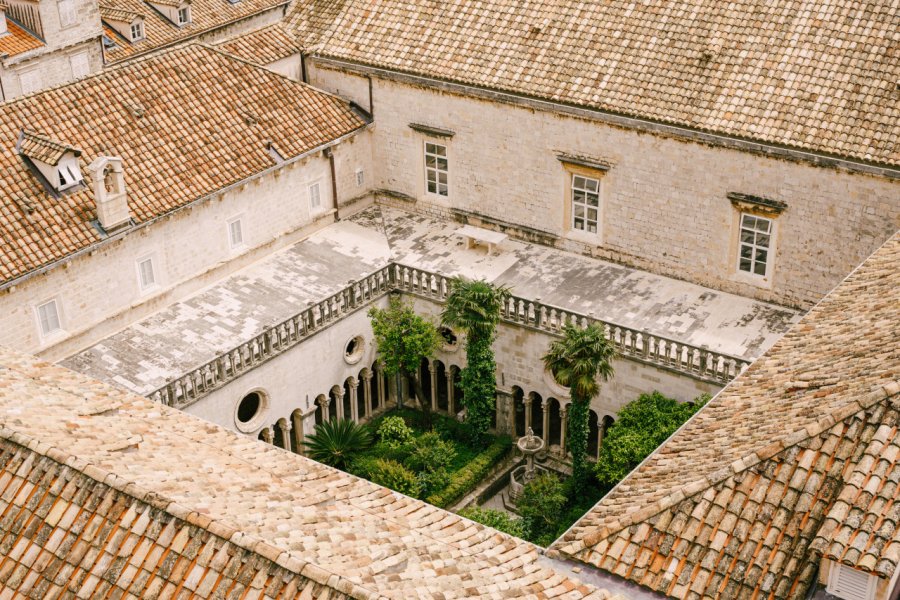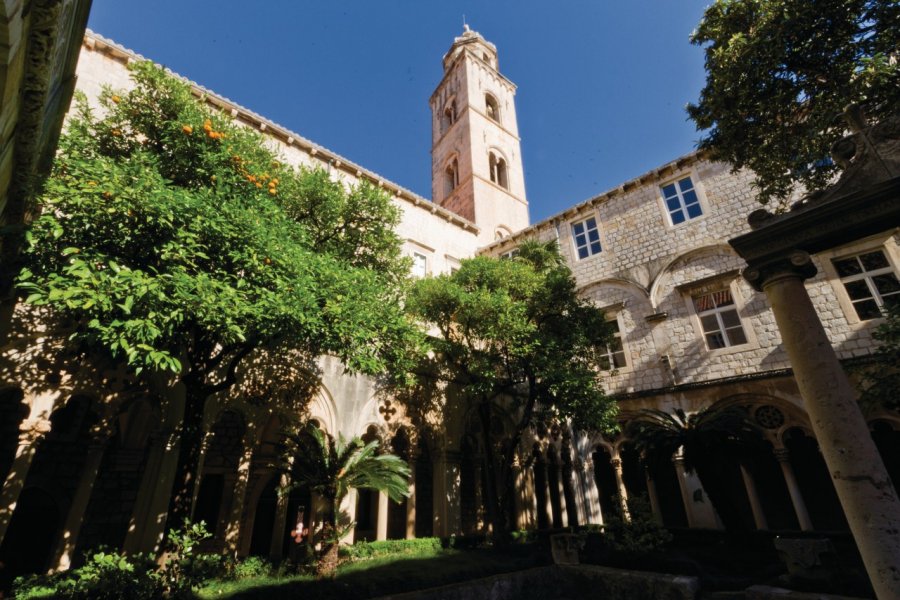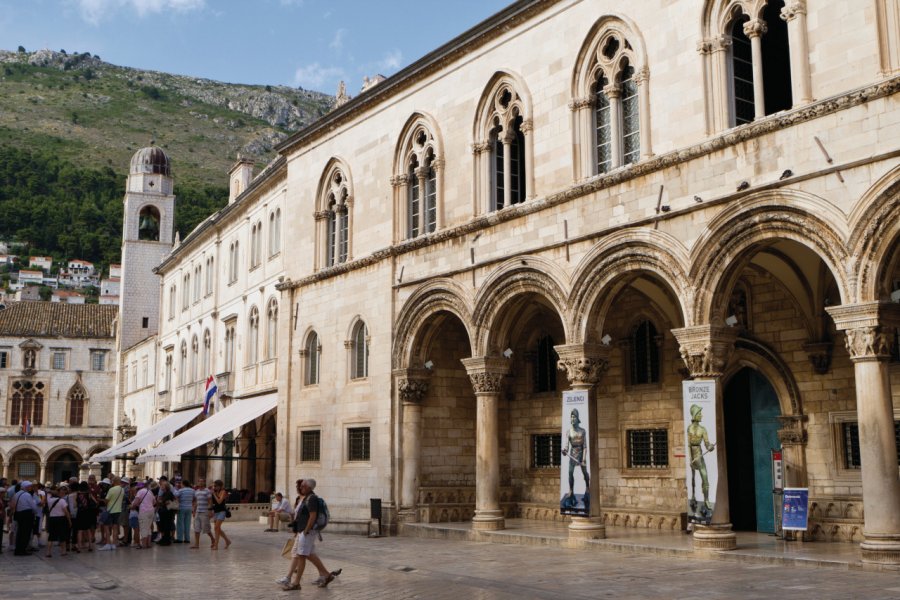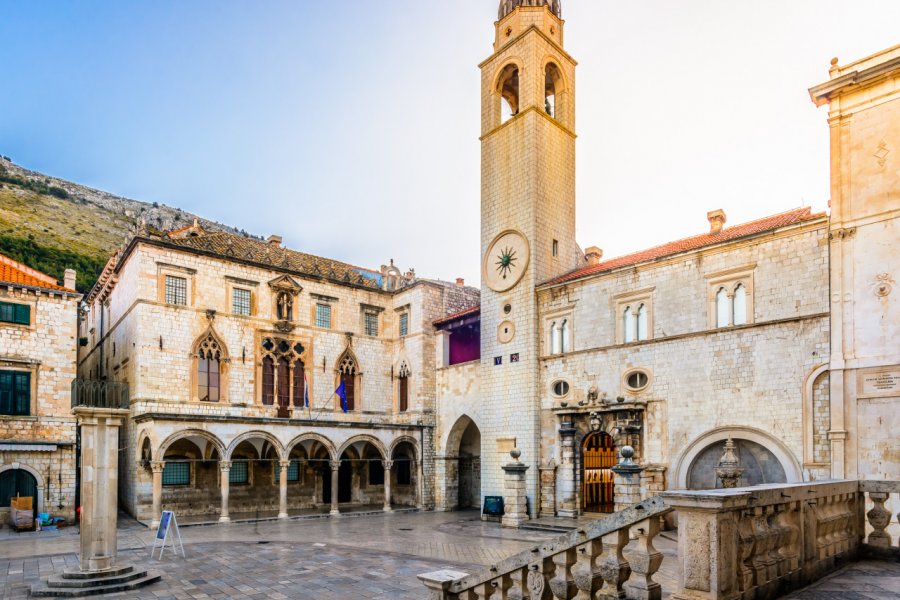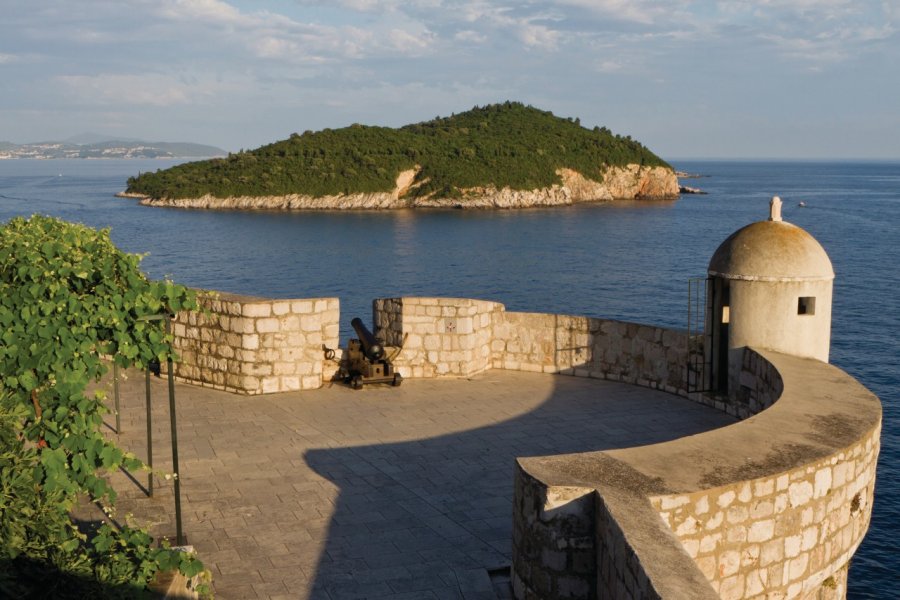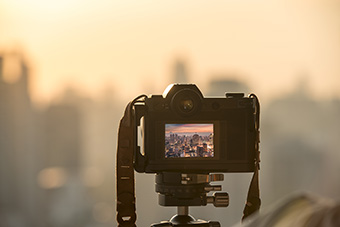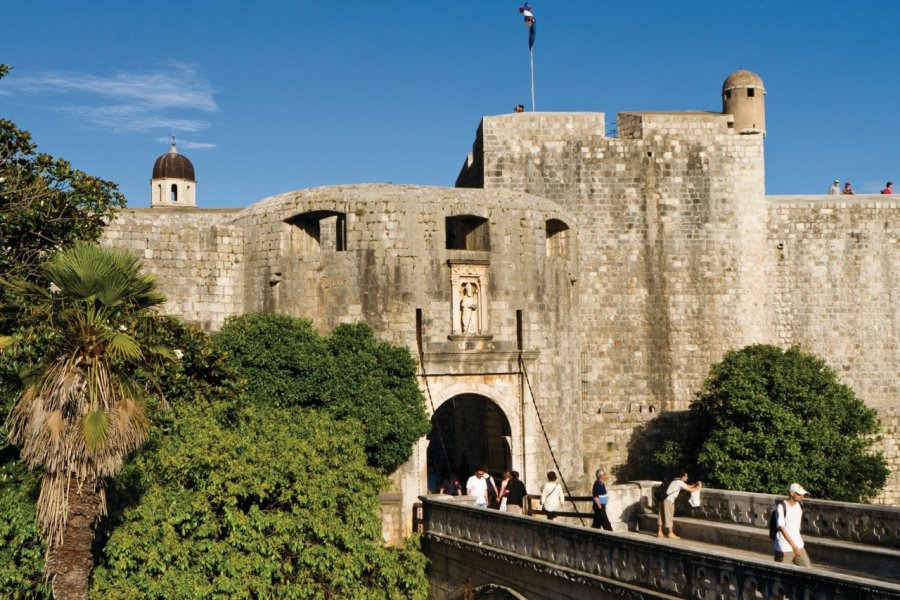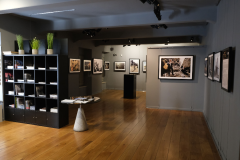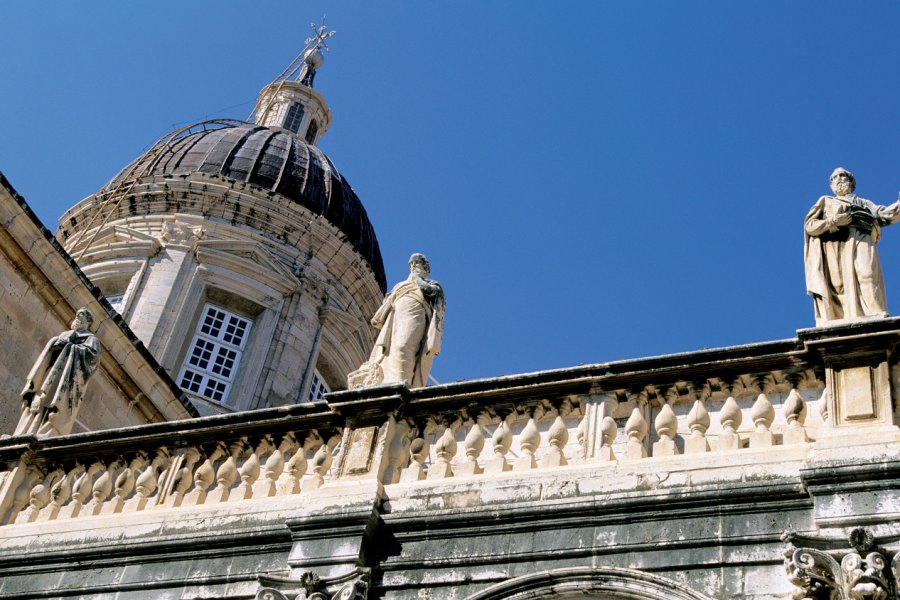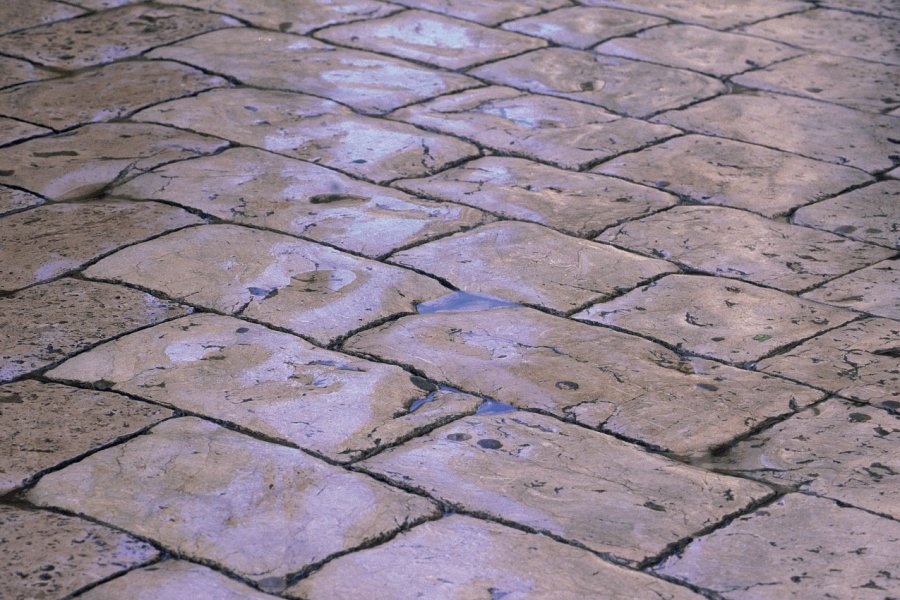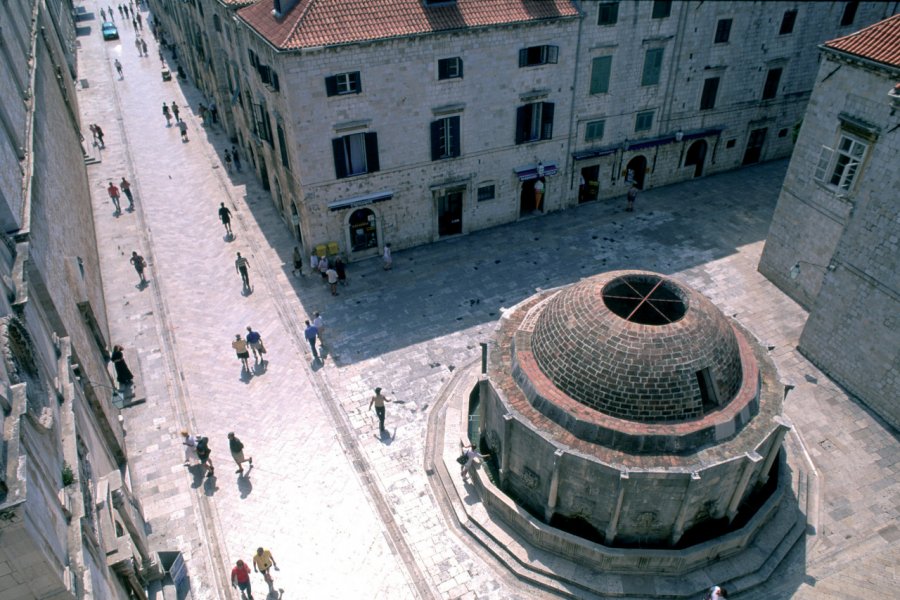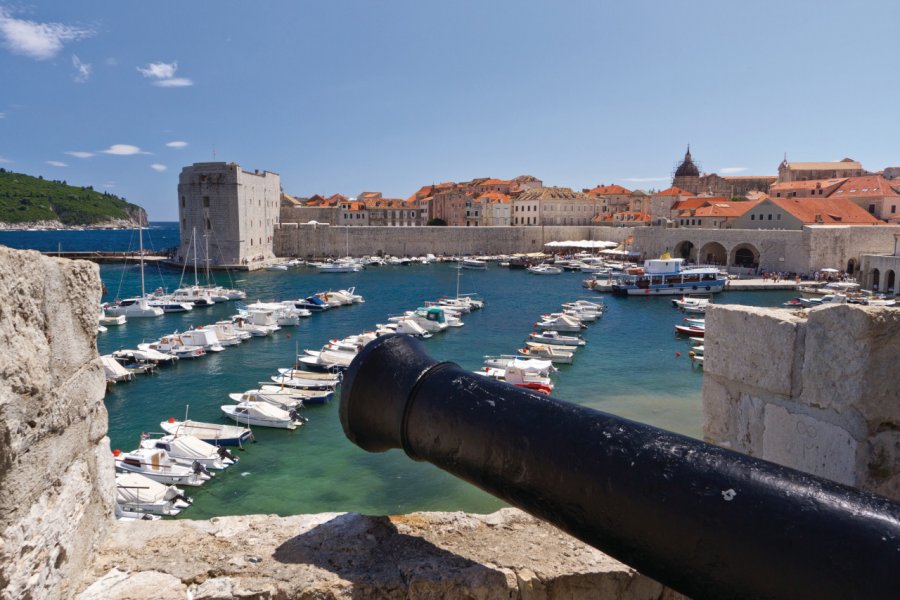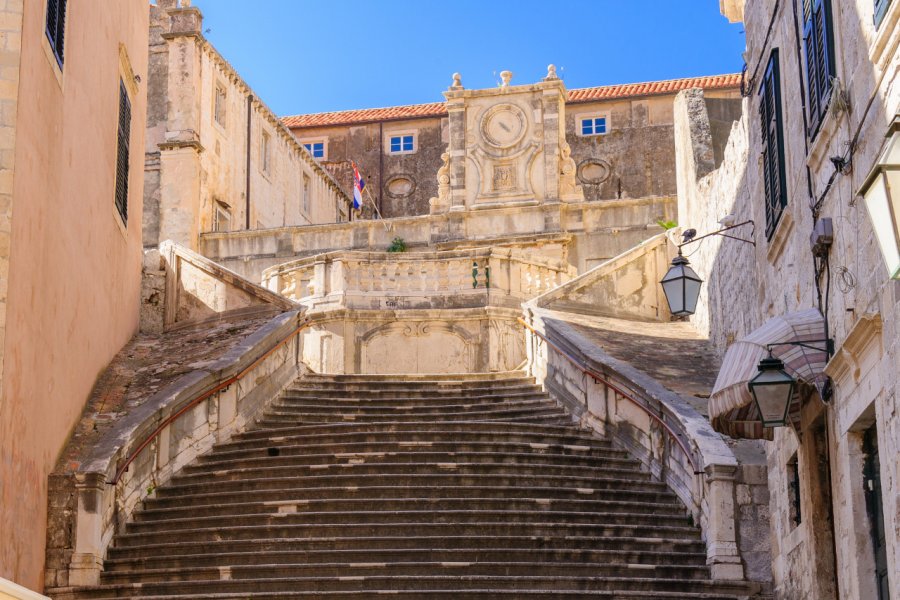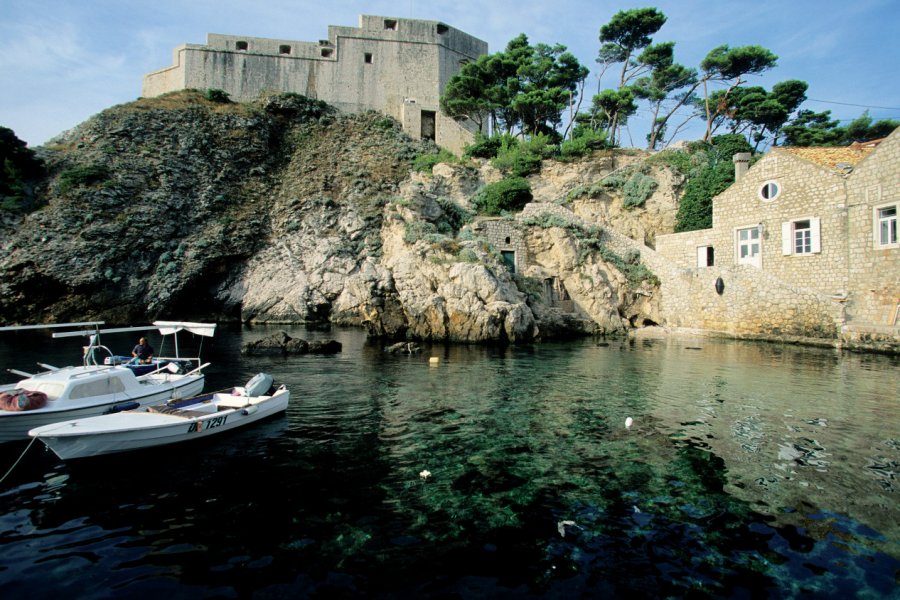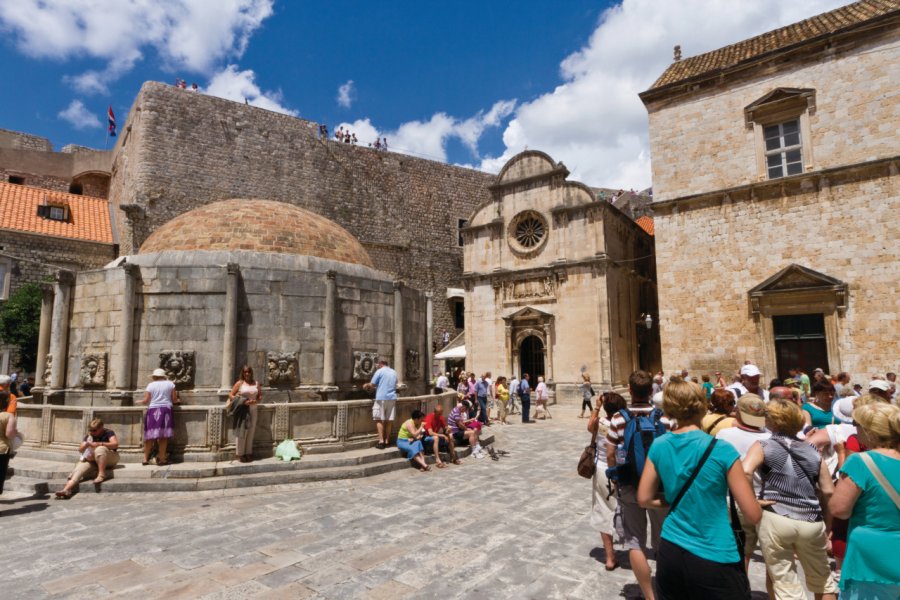What to see, what to do Dubrovnik?
The 10 good reasons to go Dubrovnik

Aperitifs on the rocks
Sit back and watch the sun set over the sea. You won't want to leave.

The wines of the region
Red wines from Pelješac and Konavle, white wines from the island of Korčula. To taste!

Nature
Mountains, islands, natural parks... get lost in the Dubrovnik region!

The peka
The dishes cooked under the bell are a must. Do you prefer lamb or octopus?

The ramparts
A sight like no other in the world. Take a tour of these fortifications overlooking the sea.

The historical heritage
Palaces, churches, even a medieval pharmacy! Ragusa's heritage is breathtaking.

The beaches
Pebbles, sand, rocks... choose your spot and dive into the turquoise water.

The sport
Kayaking, diving, sailing, biking, hiking and bungee jumping. Impossible to get bored.

Festivals
Theater, music, village festivals... discover the region to the rhythm of its events!

The gastronomy
Fish, shellfish, vegetarian, meat... eating in Dubrovnik is a treat.
What to visit Dubrovnik?

Interview: MY DUBROVNIK
with Giovanni Vale, author of the guide
Giovanni has been living in Croatia for several years. He works as a correspondent for several Italian and French media, for which he covers the Balkan region. He is also the author of the "Extinguished Countries" project, a series of travel guides dedicated to states that no longer exist. The first book, published in 2021, is about the Republic of Venice.
See the video of the interviewGood to know to visit Dubrovnik
 Timetable
Timetable
The tourist season reaches its peak in July and August. During this period, all the city's museums are working full time, often seven days a week and into the night. But high season is not the best time to visit Dubrovnik; on the contrary, summer also means serious inconveniences (traffic jams on the ramparts and overcrowded buses). It's best to come in May, June, September or early October if you can, when the crowds have left and the sea and sun are still pleasant (sea temperatures in late October are around 20°C). As for other activities and their opening times, here are a few pointers:
Grocery stores and department stores are mostly open non-stop from 8am to 8pm. Some stores and boutiques are closed between noon and 5pm, but this is quite rare. Everything is sometimes closed on Sundays. During the tourist season, many are open 7 days a week until midnight. Out of season (November-April), opening hours are considerably reduced.
Public administrations (except post offices, which are open until 9 p.m. in high season) are open from 8 a.m. to 4 p.m., Monday to Friday.
Company workinghours are concentrated in the morning, from 8am to 3pm. So, at least during the low season, rental agencies, for example, close at 3pm.
 To be booked
To be booked
Wine (or olive oil) tastings at a producer's are often best booked in advance, as are more structured excursions and sporting activities.
 Budget & Tips
Budget & Tips
A one-way ticket costs €20 (€10 concessions) and entitles you to visit nine museums over a seven-day period: Rectors' Palace, Ethnographic Museum, Museum of the Navy, Revelin Fortress, Marin Držić House, Museum of Modern Art, Dulčić Gallery, Masle, Putika, Museum of Natural History. Here's the link: www.dumus.hr
Not to be confused with the Dubrovnik Pass, which costs €55 and lasts seven days. It allows you to visit ten different museums over seven days: the city walls, the Ethnographic Museum, the Museum of the Navy, the Revelin Fortress, the House of Marin Držić, the Museum of Modern Art, the Dulčić Gallery, Masle, Putika, the Museum of Natural History, the Franciscan Monastery Museum, and the Konavle Heritage Museum in Cavtat. It provides discounts on transport and other benefits. Single-day (€35) and three-day (€45) passes are available. Ask at the tourist office. You can also buy the card online: www.dubrovnikpass.com
 Main events
Main events
february 3: Saint Blaise (Festa Svetog Vlaha). Great festival in honor of the patron saint of Dubrovnik. Religious processions and festive program.
Good Friday and Holy Week in the city of Korčula. Brotherhood processions and other cultural events. www.korculainfo.com
End of June: Cavtat summer. Artistic and musical festival, street performances. All events are free. www.tzcavtat-konavle.hr
Beginning of July - end of August: Dubrovnik Summer Festival. High quality events in an absolutely stunning setting (old town of Dubrovnik). www.dubrovnik-festival.hr
Mid-July-mid-August: Cultural summer of Mljet. Dances, animations, shows of all kinds, concerts take place on the island of Mljet. www.mklj.net
july 29: Saint Theodore (Sveti Todor), protector of the city of Korčula. Processions and various festivities. www.korculainfo.com
End of August-beginning of September: the small theater festival in Dubrovnik. International art festival, masked ball, street entertainment and theater. www.lepetitfestival.com
In October: the Good Food Festival Dubrovnik highlights Croatian gastronomy, homemade food and craft beers which are very popular in Croatia. Cooking workshops are organized on this occasion.
december 24: processions in Stradun in Dubrovnik, Christmas carols.
 Guided tours
Guided tours
Of course, there's the Game of Thrones tour, the famous series adapted from the Iron Throne saga, which was partly filmed in Dubrovnik. But the history of the city, which was for a long time an independent republic, is just as interesting as the American fiction. So it's a good idea to follow a guide on a historical tour of the old town.
 Tourist traps
Tourist traps
At the entrance to the old town, you'll find several vendors offering guided tours of the city. These are not necessarily tourist attractions, but the value for money can sometimes be disappointing. Instead, ask the tourist office for recommendations, or choose from the addresses listed in this guide. To get from one district to another (or to the airport), avoid taking a cab, or make sure the meter is running.
